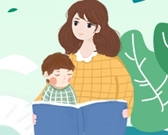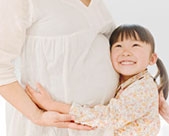前两天看到论坛里有个妈妈讲述了自己宝贝由于发烧导致的让人害怕的症状,我就想到了“发热性惊厥”。找到英国BBC网站健康版的一篇介绍“发热性惊厥”的文章,供爸爸妈妈们参考。
发热性惊厥 by Dr Trisha Macnair
比较年幼的孩子由于自身的体温调节功能还不是很完善,因此经常会发烧。有些发烧可能会导致惊厥/抽筋,被称为发热性惊厥。
什么是发热性惊厥?
发热性惊厥是当儿童发烧超过39摄氏度时会突然发作的类似于癫痫/痉挛的现象。多发生在病毒感染比如呼吸道感染的生病前期,此时体温会升高得很快。
什么引起发热性惊厥呢?
幼儿会有发热性惊厥发生,是由于大脑的脑电系统还没有发育完善,不足以应付体温过高带来的压迫。
受影响的人群有哪些?
百分之三的儿童都至少经历过一次发热性惊厥。发热性惊厥大多数发生在6个月到3岁(尽管有时6岁以内的孩子都有可能发生)。
发热性惊厥可能会有遗传倾向,多至20%的亲属都会有某种癫痫症状包括发热性惊厥。
发热性惊厥的症状有哪些?
发热性惊厥很短暂,通常只持续一到两分钟,绝不会超过5分钟。
孩子会失去知觉,变得僵硬,停止呼吸不超过30秒,而且出现大小便失禁的现象。
然后您或许会察觉到孩子的四肢抽搐或痉挛,有时也会有脸部肌肉的抽搐现象。孩子的眼睛会向上翻。
这些症状会在几分钟后消失,孩子继而会恢复意识。在发热性痉挛过后,孩子通常会陷入熟睡状态,当他们醒来后,通常会觉得有些迷糊或者烦躁不安。
发热性惊厥的处理办法有哪些?
在孩子发生发热性惊厥的时候,要避免孩子伤到自己,但是不要压住他们,也不要在他们的嘴里塞上东西。让孩子处于复原卧式(婴儿复原卧式:如果一个婴儿失去知觉但是仍然有呼吸,要将其侧抱,头倾斜,就好象你在给他一个拥抱一样,要让婴儿的头低于他的肚子)的姿势躺着。
调低室内温度,解开衣服,按说明给孩子服用扑热息痛或者布洛芬,从而给孩子退烧降温。
您的孩子或许需要去医院做进一步的治疗或检查,从而排除除了发热性惊厥以外的其它问题,尤其需要注意如果这是他的第一次惊厥。医生或许会给您的孩子开一种被称为安定的抗惊厥药物(通常是直肠用药)让您备在家里以防惊厥再次发生。
会引起其它的并发症吗?
在发热性惊厥的病例中,大约有15%的儿童会在同一次发烧生病期间再次发生发热性惊厥。同时他们还有三分之一的几率会在下次生病时发生惊厥。
在1岁之前有过发热性惊厥的发作以及有家庭病史会增加以后复发的几率。
大多数有过发热性惊厥的孩子仍然能够正常的成长发育,没有任何后遗症。然而,大概有百分之一的孩子最终会发展成癫痫症(如果孩子发热性惊厥时持续的时间超过一般正常的时间,或者在同一次发烧生病期间复发惊厥,导致癫痫的可能性较大)。作为父母的你,如果很担心,一定要向医生咨询。
不承诺声明:
所有BBC健康版的内容仅供参考阅读,不能用来代替医生或者其他健康专业人士的建议。任何用户若根据BBC健康版所列内容自己做出的诊断,BBC不予负责,不承担任何义务。同时BBC也不会签署和认可任何网站上的任何商业目的的产品和服务。如果您有任何健康方面的担忧,任何时候都要向您的医生咨询。
想要了解翻译官和翻译组的构成的,请移步:幼儿护理翻译组成立啦~·~(群号:181295960,期待你的加入)为每一位善良、热情的翻译官致敬~~~
原文来自BBC Health
http://www.bbc.co.uk/health/physical_health/conditions/febrileconvulsions2.shtml
Febrile convulsions
Dr Trisha Macnair

Very young children are prone to fevers, as their body's temperature control is not yet fully developed. This can lead to fits, known as febrile convulsions.
Dr Rob Hicks last medically reviewed this article in April 2008What are they?
Febrile convulsions are seizures (sometimes known as fits) that occur in a child with a high fever of over 39°C (102.2°F). These most typically occur during the early stages of a viral infection such as a respiratory infection, while the temperature is rising rapidly.
Febrile convulsions can be frightening but they're rarely serious.
What causes them?
The convulsions occur because the electrical systems in the brain have not yet matured sufficiently to cope with the stress of a high temperature.
Who's affected?
Three per cent of children have at least one febrile convulsion. They mostly occur between the ages of six months and three years (although they sometimes occur up to six years).
There may be a genetic predisposition - up to 20 per cent of relatives will have a seizure disorder including febrile convulsions.
What are the symptoms?
The seizures are brief, usually lasting only a minute or two and never more than five minutes.
The child loses consciousness, becomes stiff, stops breathing for up to 30 seconds and loses control of their bladder or bowel, wetting or soiling themselves.
You may then notice twitching or spasms of both limbs and occasionally the face muscles. The child's eyes roll upwards.
This stops after a few minutes and the child regains consciousness. Following the seizure they fall into a deep sleep and are often confused or irritable when they finally wake.
What's the treatment?
The aim is to stop the child hurting themselves during the seizure, but don't hold them down and don't put anything in their mouth. Place them in the recovery position and call your doctor.
To bring the temperature down, cool the room, loosen their clothing, and give paracetamol or ibuprofen according to the instructions.
Your child may need to be treated or investigated in hospital to rule out problems other than a febrile convulsion, especially if this is their first seizure.
You may be given an anticonvulsant drug called diazepam (which is administered rectally) to keep at home in case of another convulsion.
Are their any complications?
In about 15 per cent of cases, the child will have another febrile convulsion during the same illness. They also have a one in three risk of a convulsion during a subsequent illness.
Onset before the age of one and a family history increase the risk of recurrent problems.
Most children grow out of febrile convulsions without coming to any harm. However, about one per cent of children do subsequently develop epilepsy (this is more likely if the child has a longer than normal convulsion, or recurrent seizures in the same illness). Talk to your doctor if you're worried.
Disclaimer
All content within BBC Health is provided for general information only, and should not be treated as a substitute for the medical advice of your own doctor or any other health care professional. The BBC is not responsible or liable for any diagnosis made by a user based on the content of the BBC Health website. The BBC is not liable for the contents of any external internet sites listed, nor does it endorse any commercial product or service mentioned or advised on any of the sites. See our Links Policy for more information. Always consult your own GP if you're in any way concerned about your health.
此帖已经被版主贝塔妈奖励积分20分。






